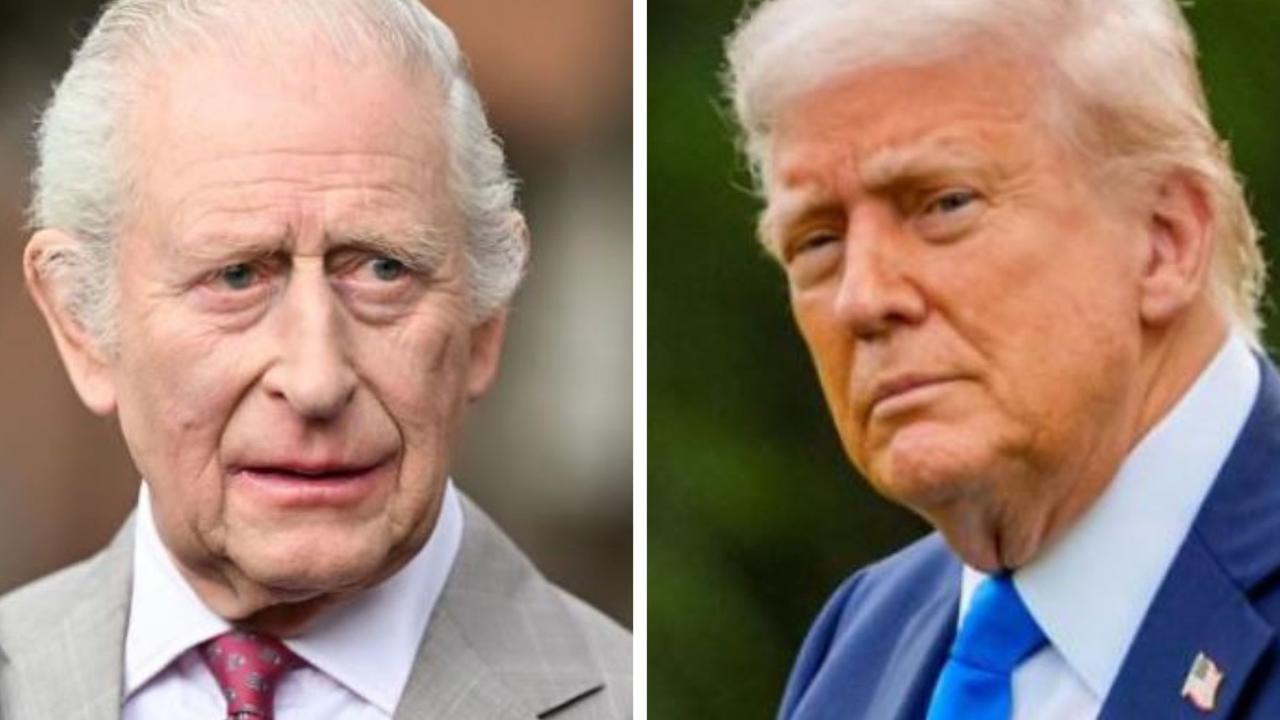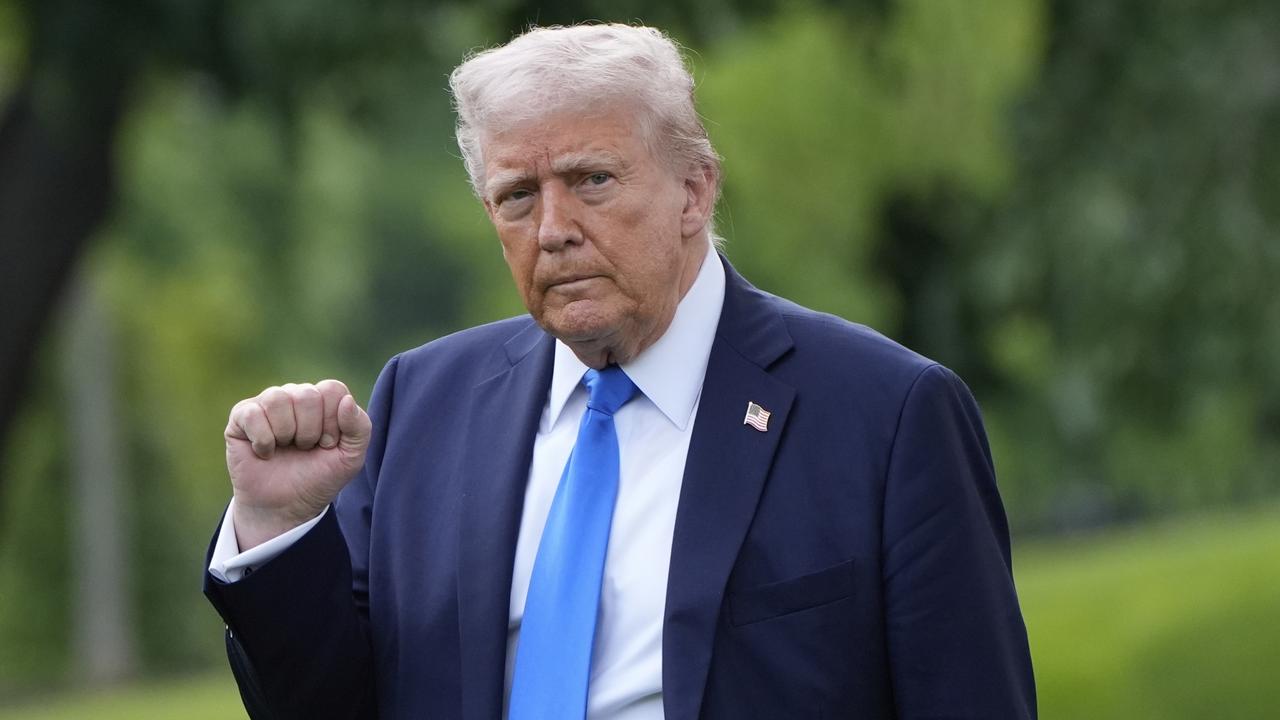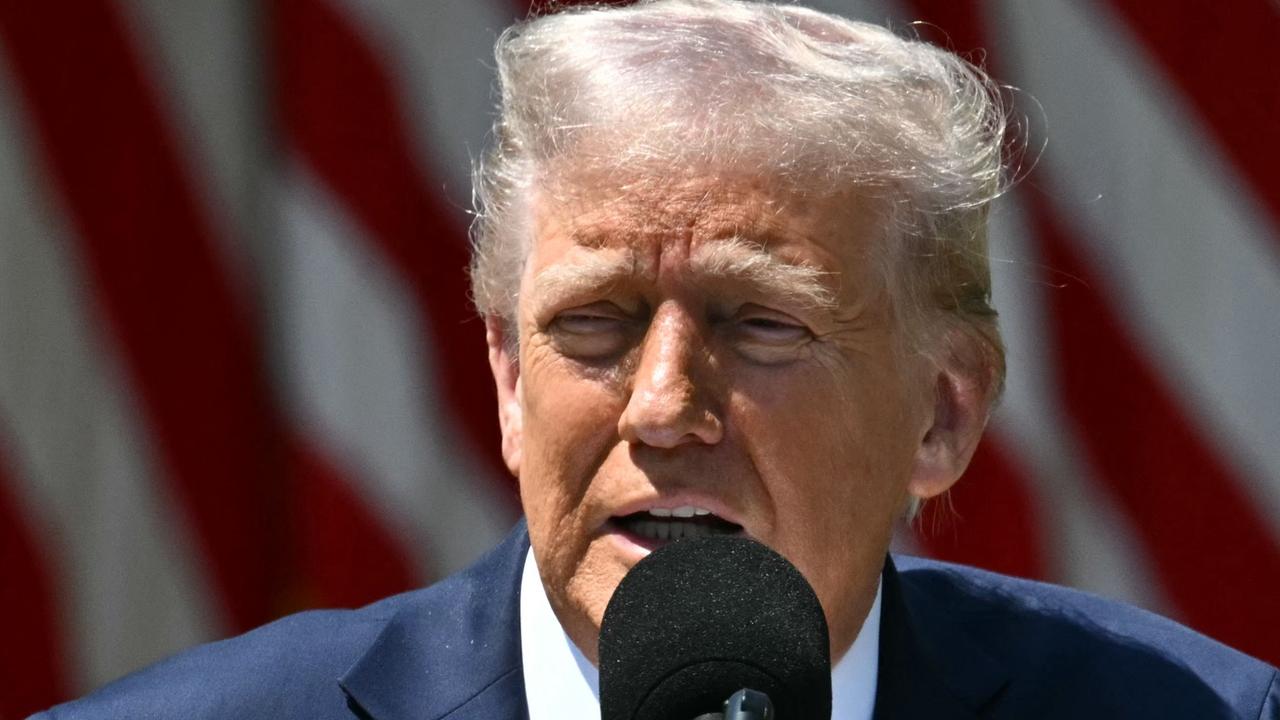US Election 2020: Trump to use obituaries of dead people who ‘voted’ in legal fight
Donald Trump is still refusing to accept the US election result, with the president’s advisers revealing his next plan of attack.
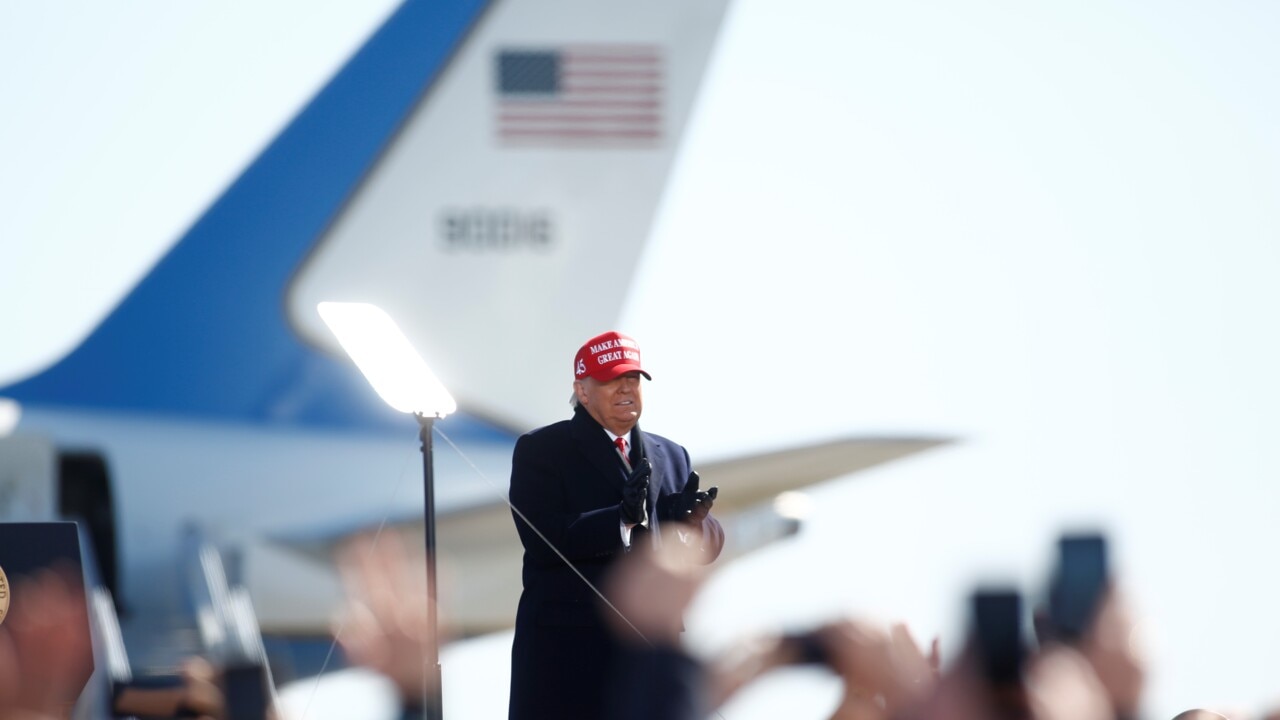
Donald Trump continues to publicly insist that the US election result is premature and has repeatedly said he will fight in court.
And according to four Trump advisers, the president and his team have already mapped out their plan of attack.
Speaking to Axios, the Trump campaign team plans to “brandish obituaries” of people who are dead but supposedly voted.
The obituaries for those who cast ballots will form part of “specific pieces of evidence” in Mr Trump’s court battle to delegitimise the election results.
Mr Trump’s team is yet to provide any evidence of voter fraud and corruption related to the US election and their claims are all unsubstantiated.
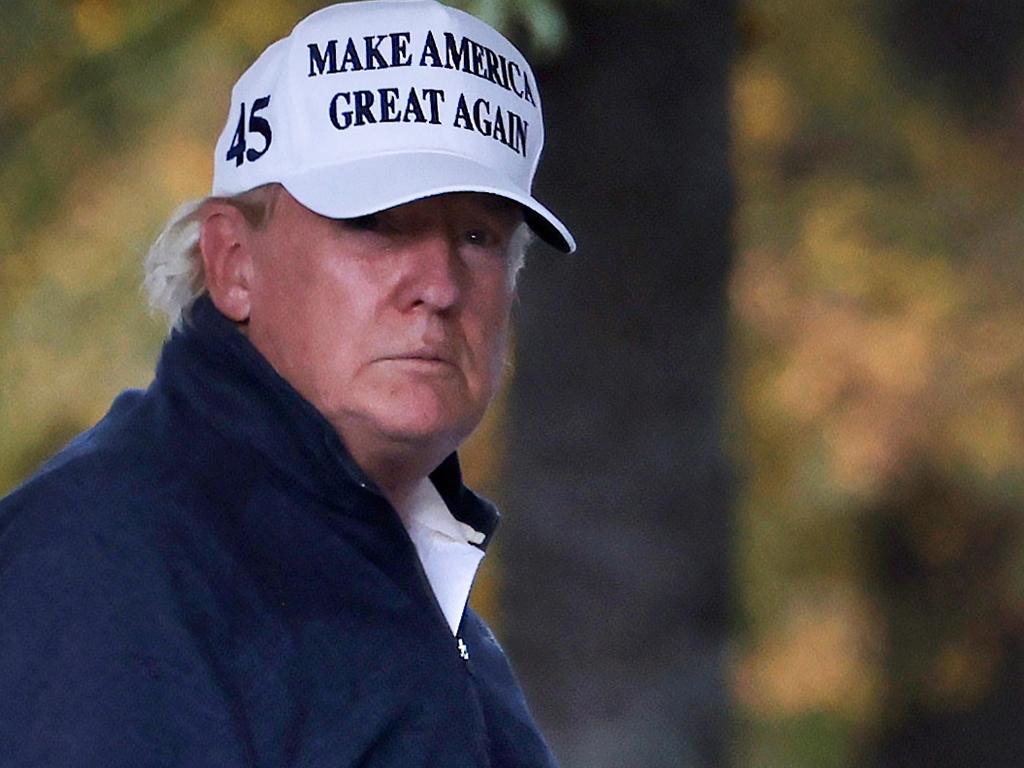
Mr Trump’s potential fight in the Supreme Court to dispute Joe Biden’s presidential election win is shaping up to be a brutal battle.
But two sources have told Fox News that Mr Trump would concede and execute a peaceful transfer of power if the legal challenges can’t change the election outcome.
Minutes after US media declared Mr Biden the victor on Saturday, the President rejected that conclusion, saying he will prove in court that he was the winner.
“The simple fact is this election is far from over,” Mr Trump said in a statement.
“Legal votes decide who is president, not the news media.”
To understand why the US President and his supporters believe they have a chance with their legal battles, we need to jump back 20 years to the election battle between Al Gore and George Bush.
In 2000, the White House contest between Republican George Bush and Democrat Al Gore rested on one state: Florida.
With Mr Bush ahead by just 537 votes, and with problems with the state’s punch-card ballots, the Gore campaign sought a statewide recount.
The Bush campaign appealed the case to the US Supreme Court, which ruled to effectively block the full recount, handing Florida – and the election – to Mr Bush.
The 2000 election took 36 days of legal wrangling and left the country in suspense as votes in Florida were counted and recounted exposing issues with counting machines, badly punched voting cards and irregularities in postal voting.

RELATED: Follow our live coverage of the US election result
RELATED: The first thing Biden will do as President
Experts say such lawsuits are only practical if focused on a real problem and the vote gap is narrow.
In states disputed by Mr Trump (such as Pennsylvania) the vote count is much wider.
Mr Biden is up by more than 40,000 votes in Pennsylvania and the state’s 20 electoral votes were awarded to the Democrat at the weekend.
Georgia, which has also seen its ongoing results disputed by the Trump campaign, has Mr Biden up by more than 10,000 votes.
However Mr Biden has already won 290 electoral votes, and is leading in Georgia, which could push him above 300 after a recount.
According to voting rules in that state, the Secretary of State said on Friday that due to the small margin between the candidates, there would be a recount of all votes.
The Trump campaign has also demanded a recount in Wisconsin, where Mr Biden is up more than 20,000 votes.
Nevada was also a battleground state for the two leaders but has since been won by Mr Biden by two percentage points – a lead that is too large to come back from through legal processes, according to Derek Muller, a law professor at the University of Iowa.
He said if the margin separating candidates in a state is two or three percentage points, “That’s pretty difficult to be litigating at the end of the day.
“(However), if it comes down to one state, then I would expect really serious litigation,” he said.
Professor Richard Hasen, an election law expert at the University of California, said: “Trump’s litigation strategy is going nowhere. It is not going to make a difference to the election outcome.”
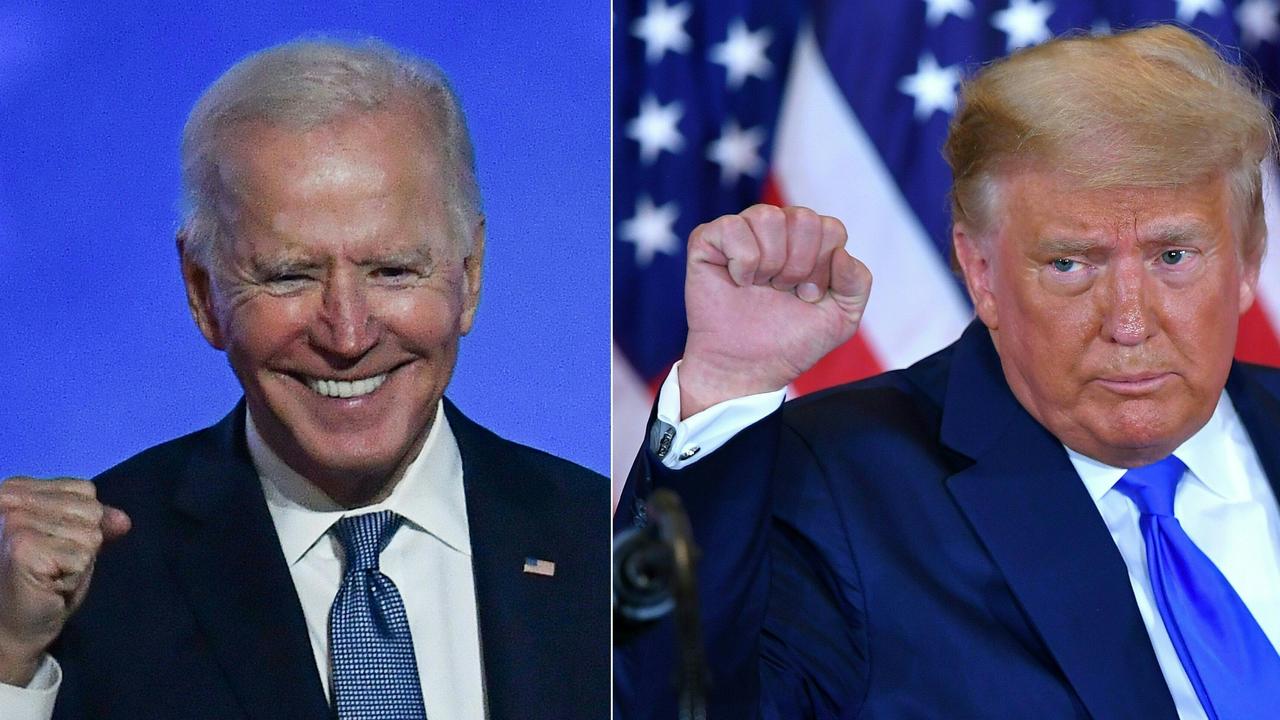
If a campaign or candidate sues over state regulations, they have to first exhaust their options in the state justice system before heading to federal court and the US Supreme Court.
By piggybacking on the existing ballot extension case, the Trump campaign has raised its chances of reaching the high court.
But since that 2000 election, the Supreme Court has been cautious over involvement in voting matters that are decided by states, aware that it risked its standing as an independent body by effectively handing the presidency to Bush 20 years ago.
A case would put the political leanings of the court’s six conservative and three liberal justices in the spotlight – especially on Amy Coney Barrett, who joined the court only last month.
Mr Trump said he rushed her appointment in part so she could be in place to hear any election cases.
But while the Supreme Court felt like it needed to intervene in 2000, “It’s not necessarily clear they would feel the same way today,” Prof Muller said.
Supporters of the President have pounced on the 2000 decision, claiming it gives them a strong chance of overturning the election result.
Trump campaign communications director Tim Murtaugh earlier tweeted photos of the campaign’s headquarters – covered in a photoshopped article from 2000 claiming Al Gore had won the presidency.
The tweet, which has since been deleted, read: “Greeting staff at @TeamTrump HQ this morning, a reminder that the media doesn’t select the President.”
Washington Post fact-checker Glenn Kessler found the real version, which literally says the opposite – that Mr Bush won.
Looks like @TimMurtaugh deleted his tweet after receiving this: https://t.co/8A0IOCbo69
— Glenn Kessler (@GlennKesslerWP) November 8, 2020
RELATED: Have your say on Trumps greatest achievement in our poll
RELATED: US erupts as Joe Biden wins
The Trump campaign lawsuits attack a unique aspect of the 2020 election – that millions of voters cast mail-in ballots because of the coronavirus pandemic.
The COVID-19 threat forced states to promote mailed ballots and change rules on how they would be collected, verified and tabulated.
That included extending the periods for receiving ballots, due to an overburdened US Postal Service, adding time for vote counting.
The Republicans say some of those changes were decided or implemented improperly and in ways that favour Democrats.
In Pennsylvania, the Trump campaign said it would join an existing Republican suit over the state’s deadline extension for receiving mail-in ballots.
The Pennsylvania Supreme Court ruled the extension legal, but the US Supreme Court has still declined to get involved.
If successful, they have the potential to disqualify tens of thousands of ballots that arrived after November 3.
Since when does the Lamestream Media call who our next president will be? We have all learned a lot in the last two weeks!
— Donald J. Trump (@realDonaldTrump) November 8, 2020
In one respect, Mr Trump is right: Legal votes do indeed decide who becomes president.
The election is not truly over until each state formally certifies its vote, and this will take place over the coming weeks.
But with nearly all the 150 million-plus ballots counted, he simply does not have enough votes in the Electoral College that formally chooses the president, US media collectively concluded on Saturday.
It’s highly unlikely the Supreme Court will move to overturn election results with most states recording thousands of extra votes for Mr Biden.
Recounts are expected in Wisconsin and Georgia, and are possible in other states.
But recounts rarely reverse verdicts.
“In modern American elections, recounting almost never changed results by more than a couple hundred votes,” said Steven Huefner, an election law expert at Ohio State University.
A recount in Wisconsin in 2016 netted 131 votes to Trump’s lead over Democratic rival Hillary Clinton – not even close to the thousands Trump would need this time around.
– with wires


